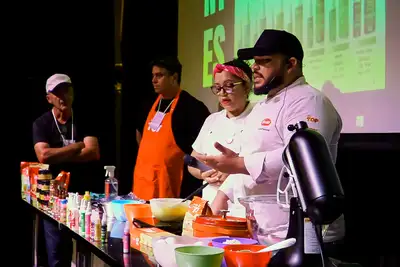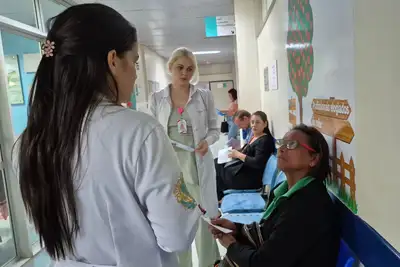Metropolitan Hospital records a 30% increase in care for elderly victims of falls
From January to June of this year, 652 people aged 60 and over were treated at the Government of Pará unit. In 2024, during the same period, there were 502.
The health of the elderly requires constant vigilance, especially in environments that facilitate the risk of falls. A single accident, whether at home or in public spaces, can trigger severe trauma, with elevated risks of prolonged hospitalizations, irreversible complications, and loss of autonomy.
The Government of Pará's health unit, the Metropolitan Emergency and Urgency Hospital (HMUE), in Ananindeua, in the Metropolitan Region of Belém, is a reference for severe trauma. In 2024, the unit treated 1,112 elderly people who suffered falls. Of these, 62% fell at home.
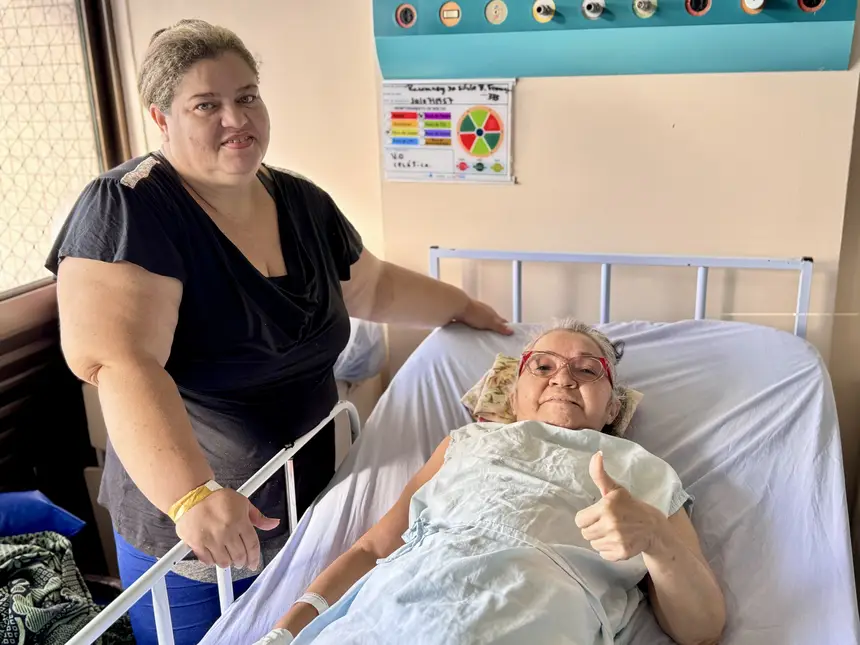
From January to June of this year alone, 652 elderly people have already been treated for falls at the unit, of which 55% were again recorded in the home environment. The comparison with the same period in 2024, when there were 502 treatments, indicates a 30% increase.
"Falls in old age are never trivial incidents," warns orthopedic surgeon Eric Teixeira. "In many cases, they carry negative potential for health, with femur fractures that require surgery, cranioencephalic trauma, with risks of hemorrhages and prolonged hospitalizations,” adds the orthopedic surgeon.
In addition to physical pain, the abrupt loss of independence can generate psychological trauma. "The paralyzing fear of new falls creates a traumatic cycle. The elderly reduce their activities, weaken their muscles, and become unbalanced more easily. Thus, the risk of another fall increases exponentially," highlights Eric Teixeira.
Aggravating factors - The scenario is even more critical for elderly people with chronic diseases, such as diabetes, hypertension, and heart diseases, which compromise recovery. “An elderly person with diabetes or hypertension, for example, faces an even more complex situation because, in the face of the need for emergency surgery, there is a need to stabilize the patient's condition, which requires monitoring and time,” explains the doctor.
According to the National Institute of Traumatology and Orthopedics, about 40% of elderly people aged 80 and over suffer falls every year. The data reinforces that the home, a space seen as safe, can hide dangers, such as slippery floors, insufficient lighting, and unstable furniture.
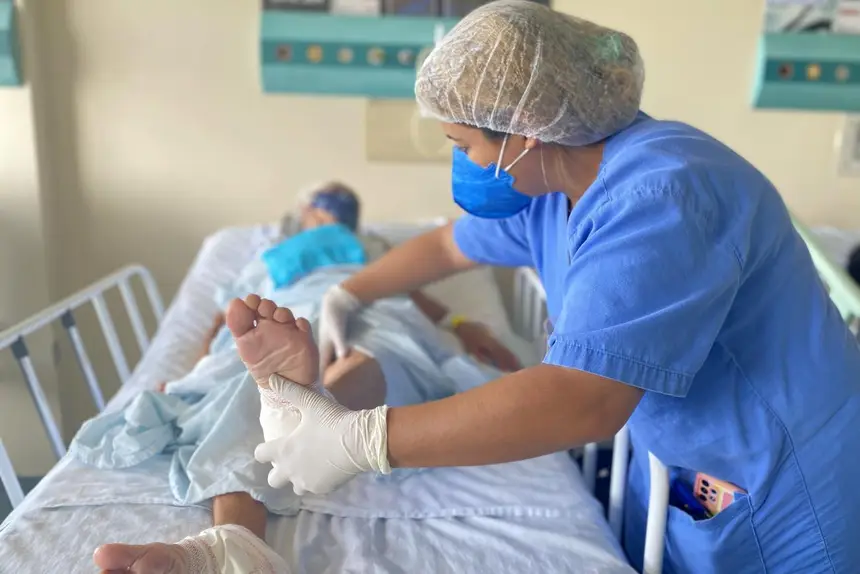
Fractures - Maria José, 78 years old, has been hospitalized for eight days at the Metropolitan after suffering a fall. She says that among the preventive measures, she is now not going out alone anymore. “I walk alone. I go to the bank, to appointments, and take care of my things. Unfortunately, this accident happened and I fractured my femur. Now, I will avoid going out alone, even knowing that it would happen if I were with my grandchildren,” says Maria.
Rosemary da Silva, 68 years old, a resident of Marituba, also in the Metropolitan Region of Belém, fell at home while cooking and is also hospitalized after fracturing both feet. “I confess I don’t remember how it happened. I only remember being on the floor, in a lot of pain, and I managed to drag myself to the room to get my cell phone. I take some medications, and I usually read the leaflets of all of them. I know that some can cause dizziness or something like that, and I believe that was it. It was a surprise for me to have broken both feet,” she reports.
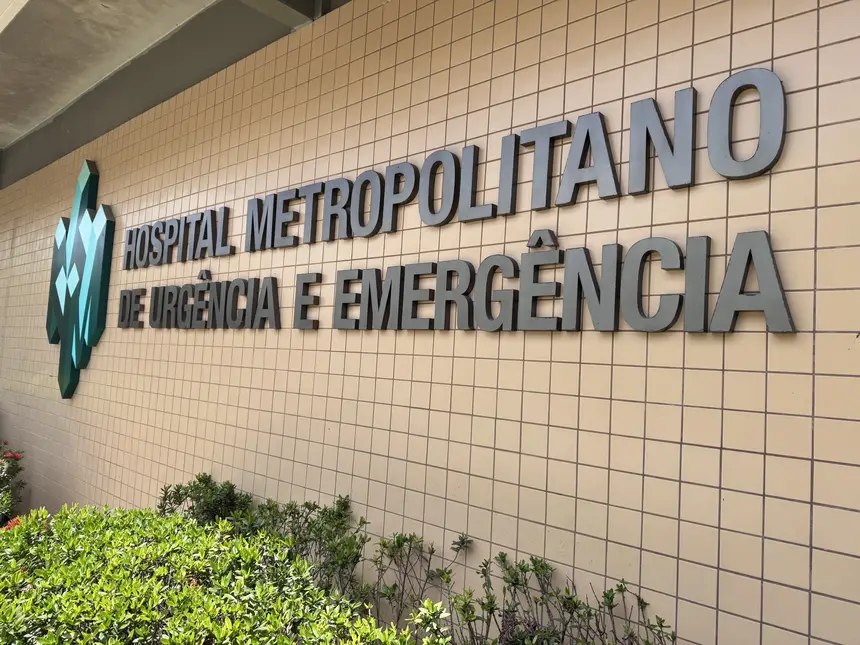
Guidelines on how to avoid accidents, formulated by the World Health Organization (WHO)
In the bedroom
- Place a lamp/flashlight and phone near the bed;
- Cabinets should have lightweight doors and large handles to facilitate opening, as well as internal lighting to help visualize belongings;
- Inside the cabinet, arrange clothes in easily accessible places, avoiding the higher spots, and
- Do not leave the bedroom floor cluttered.
In the living room and hallway
- Arrange furniture in a way that there is a clear path to walk through;
- Install light switches at the entrance of rooms, so that it is not necessary to walk in the dark;
- Keep telephone, electrical, and extension cords out of traffic areas - never under rugs;
- In open areas, place rugs with adhesive on both sides or with a non-slip bottom, and
- Do not sit in low chairs or sofas, as the degree of difficulty required to get up is greater. Additionally, these should be comfortable and have arms.
In the kitchen
- Remove rugs that promote slipping;
- Immediately clean any liquid, grease, or food that has been spilled on the floor;
- Store food, dishes, and other cooking accessories in easily reachable places;
- Shelves should be well secured to the wall and floor, to allow support when necessary, and
- Do not climb on chairs or boxes to reach cabinets that are high up.
In the bathroom
- Place a non-slip mat next to the bathtub or shower for your safety, when entering and exiting;
- Use non-slip strips inside the bathtub or on the shower floor;
- Install grab bars on the bathroom walls;
- Handheld showers are more suitable;
- Keep some type of lighting during the night;
- Replace glass shower walls with a non-slip material, and
- When taking a shower, use a sturdy plastic chair, about 40 cm high, if you cannot bend down to the floor or feel unstable.



